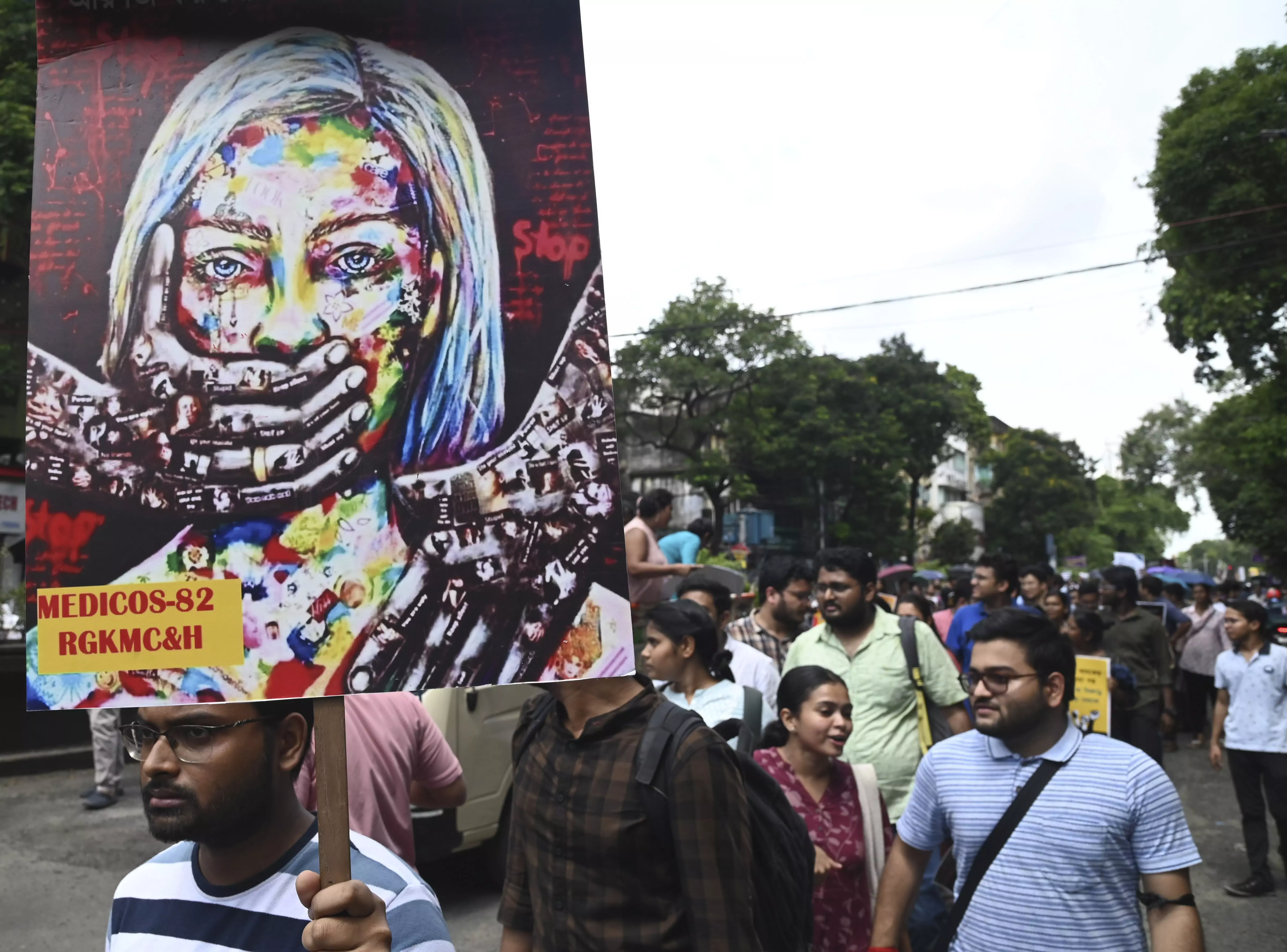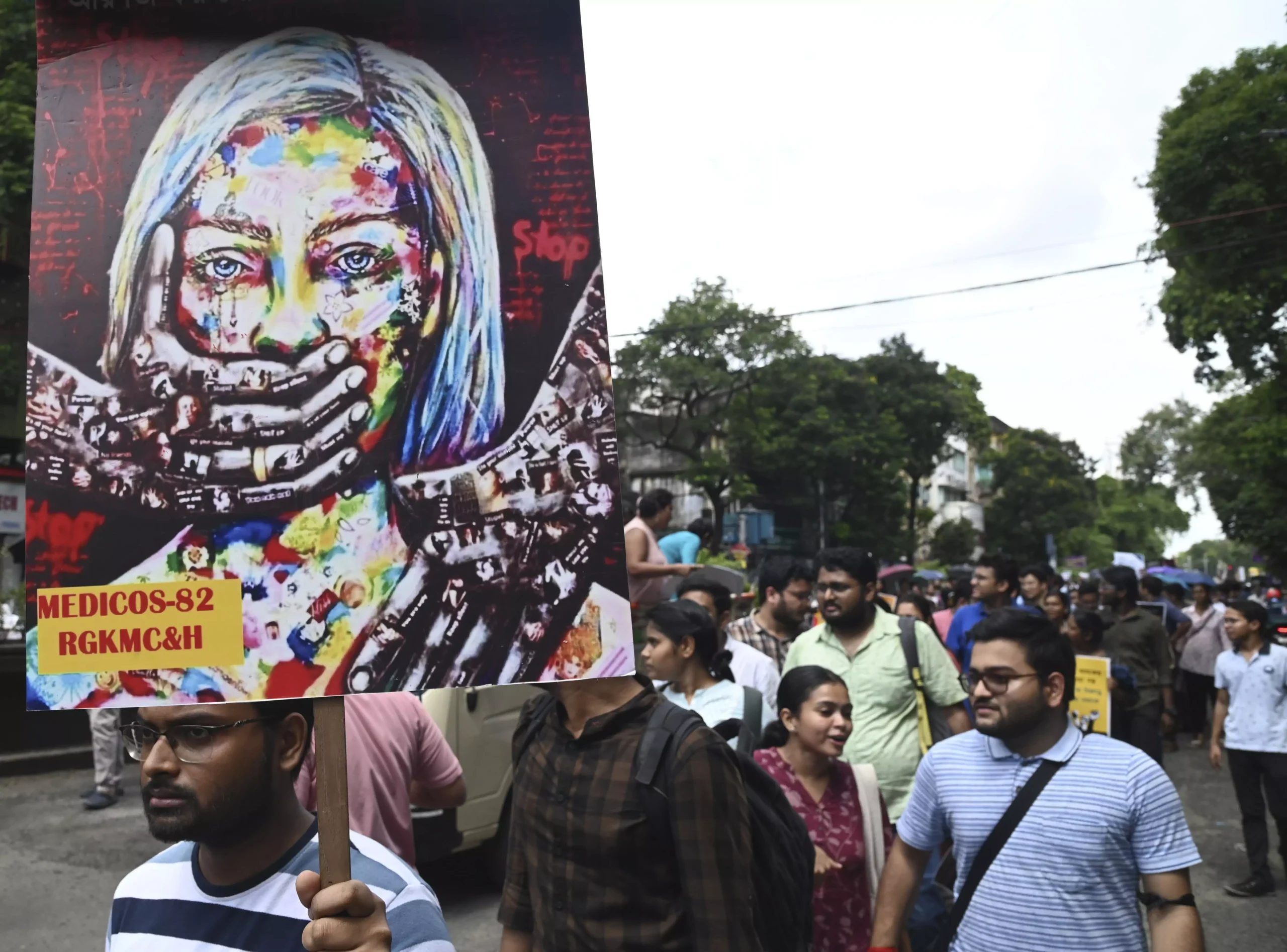
If it shows nothing else, the uproar over a shockingly brutal rape and murder in Calcutta, sorry, Kolkata, as renamed by West Bengal’s aggressively nationalistic chief minister, demonstrates that the city is far from dying, as Rajiv Gandhi had once thought. If death does indeed loom ahead, it’s because all those senses that men believe make them superior to animals are withering away. West Bengal’s capital doesn’t need any BJP machinations to destroy it. The greed, vulgarity and cruelty of its own inhabitants is doing that very well, thank you.
In his final perceptive contribution to the story of man, a massive 979-page memoir, Thy Hand, Great Anarch! India: 1921-1952, Nirad C. Chaudhuri compared Calcutta Corporation, a cesspool of corruption and inefficiency where he once worked, with Independent India. “I anticipated that transfer of political power to Indians would make the Indian people victims of an insidious exploitation unparalleled even in the long history of their sufferings”, he wrote.
“I became opposed to the idea, and said to myself in the words of the cliché that India in that event would become Calcutta Corporation writ large”.
If anything, it’s actually worse. Not even the degraded municipality can be guilty of the “90 rapes reported daily, four every hour and one every 15 minutes” that is the national record, according to Abhishek Banerjee, West Bengal chief minister Mamata Banerjee’s nephew and anointed heir, and designated the ruling Trinamul Congress party’s national general secretary. So far as they are known, the agonising facts are briefly stated. A 31-year-old female postgraduate trainee doctor was raped and murdered in the seminar hall of Kolkata’s R.G. Kar Medical College and Hospital on the night of August 9. Exhausted by a 36-hour working shift and study session without a break, she had fallen asleep on a platform in the seminar room. Interns and fellow trainees discovered her corpse, semi-nude and with injuries, there the next morning. Her laptop, notebook and mobile phone lay beside her. Before the Calcutta high court handed over the investigation to the CBI, it commented acidly on delays in reporting facts, on contrary statements made to the authorities as well as to the victim’s father, and on what looks like suppression of evidence.
Founded in 1886 and known until Independence as the Carmichael Medical College after a British colonial grandee, the hospital in question was closely associated with Dr Bidhan Chandra Roy, an eminent physician who was West Bengal’s chief minister from 1948 until he died in 1962. In recent years, however, the R.G. Kar Hospital — like much else of our colonial inheritance – has acquired a far from savoury reputation.
Hygiene and cleanliness are of little concern. Nursing sisters are poorly trained. There are suspicions about money, kickbacks and equipment purchased.
Washrooms and safe drinking water are hard to come by. Thanks to intense overcrowding and the government’s belief that it’s bad PR to turn people away, patients sprawl on the floor among defecating cats that further spread disease in a supposed place of healing. “If a room has 30 beds”, a newly-arrived doctor observed, “you’ll find at least 10 cats there!” Of far greater concern are persistent rumours of the highest college officials selling unclaimed bodies and trafficking in biomedical waste.
The demand for hospital beds and college seats being so high and supply so limited, disadvantages are brushed aside. Those who need jobs or treatment cannot afford to be fussy in today’s India that is Bharat. The independent Centre for Monitoring Indian Economy estimates unemployment at 9.2 per cent, to say nothing of under-employment and widespread concealed unemployment. Over 44 per cent of Indians in the 20-24 age group are without jobs, says Dr Amit Mitra, former secretary-general of the Federation of Indian Chambers of Commerce and Industry, now special adviser on finance to West Bengal’s Mamata Banerjee. His grim verdict is that “450 million Indians are not working or have given up looking for jobs”.
While hard facts about the rape-murder may be scarce, I am astonished at the wealth of salacious detail in the local media, especially about a man called Sanjay Roy, a civic volunteer accused of extortion, corruption and intimidating women but never brought to book, who is now facing trial for the crime. We learn that Roy, who was politically influential on the police welfare board, wore a Kolkata Police T-shirt, rode a bike with a police sticker, and rested in the police barracks. Some reports mention a recent psychoanalytic profile indicating that he was addicted to pornography (the police found a large amount of it in his mobile), had “animal-like instincts” and showed no remorse for the crime.
CCTV footage showed Roy entering the hospital in the afternoon of August 8 wearing jeans and a T-shirt, carrying a helmet that looks remarkably like the police’s uniform helmets, and again at around 4 am next morning. Some reports claim that he was intoxicated and asked a random woman for her nude photograph. Others say that he had visited a red-light district.
India is ostentatiously puritanical but despite Buddha and Gandhi, neither non-violent nor asexual. We read of Dalits being gang-raped, of girls being lured into the fields, and a four-year-old boy being sodomised and killed.
Chaudhuri mentions a politician accused of attempting to rape a woman who had gone to see him for a job. He knew the accused man “and could hardly believe it of him”, but the woman’s disturbed, almost hysterical, condition could not be ignored. Such incidents persuaded Chaudhuri to “regard ‘government of the people, by the people, and for the people’ as the greater, and British rule as the lesser, evil of the two”.
That seems an extreme position but Nirad Chaudhuri, whom I knew well, was not someone to sugarcoat what he saw as the truth. What would his reaction be, I wonder, to the upsurge in Kolkata and its tragic cause? He would probably have said that a race that can no longer achieve greatness diverts its energies into sordid or trivial channels. Despite Mamata Banerjee’s verbal bravado, Kolkata has degenerated into a dilapidated slum because West Bengal’s creative impulse and ability have perished. As for the Centre, it squanders time and effort on frivolities like swadeshi convocation gowns because the serious business of governance — providing food, education and employment and teaching people the difference between good and bad, right and wrong –is beyond its conception or capability.
If the August 9 horror exposed Kolkata’s death throes, the ensuing politicisation confirmed that the stench of putrefaction extends beyond the cadaver.
